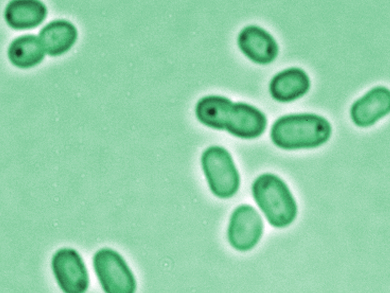Cyanobacteria are autotrophic prokaryotes, i.e., organisms that produce complex organic compounds themselves. They have a high potential to become the mainstream biotechnology production platform for high-value bioproducts. However, the synthetic biology tools to predictably control gene expression in cyanobacteria are far behind those developed for other microorganisms.
Brian Pfleger, University of Wisconsin-Madison, Madison, WI, USA, and colleagues built a novel inducible small RNA (sRNA) system to control gene expression in the fast-growing, cyanobacterium Synechococcus sp. strain PCC 7002. For this, they combined a newly constructed anhydrotetracycline (aTc)-based induction system and a trans-acting sRNA system to produce an inducible sRNA system to function in the cyanobacterium strain. Compared to other induction systems in cyanobacteria, the aTc inducible system is more tightly regulated, has significant higher fold induction at non-toxic levels, and shows a very sensitive induction. This makes it advantageous, especially when a lesser quantitiy of protein is desired.
Additionally, the team showed that the native RNA binding Hfq protein – critical for regulation of sRNA systems – was not involved in the function of the adapted sRNA system.The Hfq interruption suppresses the natural competency of the cyanobacterium strain. Further research could faciliate the use of native syanobacterial sRNA scaffolds in synthetic biology projects.
This synthetic biology tool can be used to study the metabolism and generate new industrial strains of cyanobacteria.
- Construction of new synthetic biology tools for the control of gene expression in the cyanobacterium Synechococcus sp. strain PCC 7002,
Erin K. Zess, Matthew B. Begemann, Brian F. Pfleger,
Biotechnol. Bioeng. 2015.
DOI: 10.1002/bit.25713




